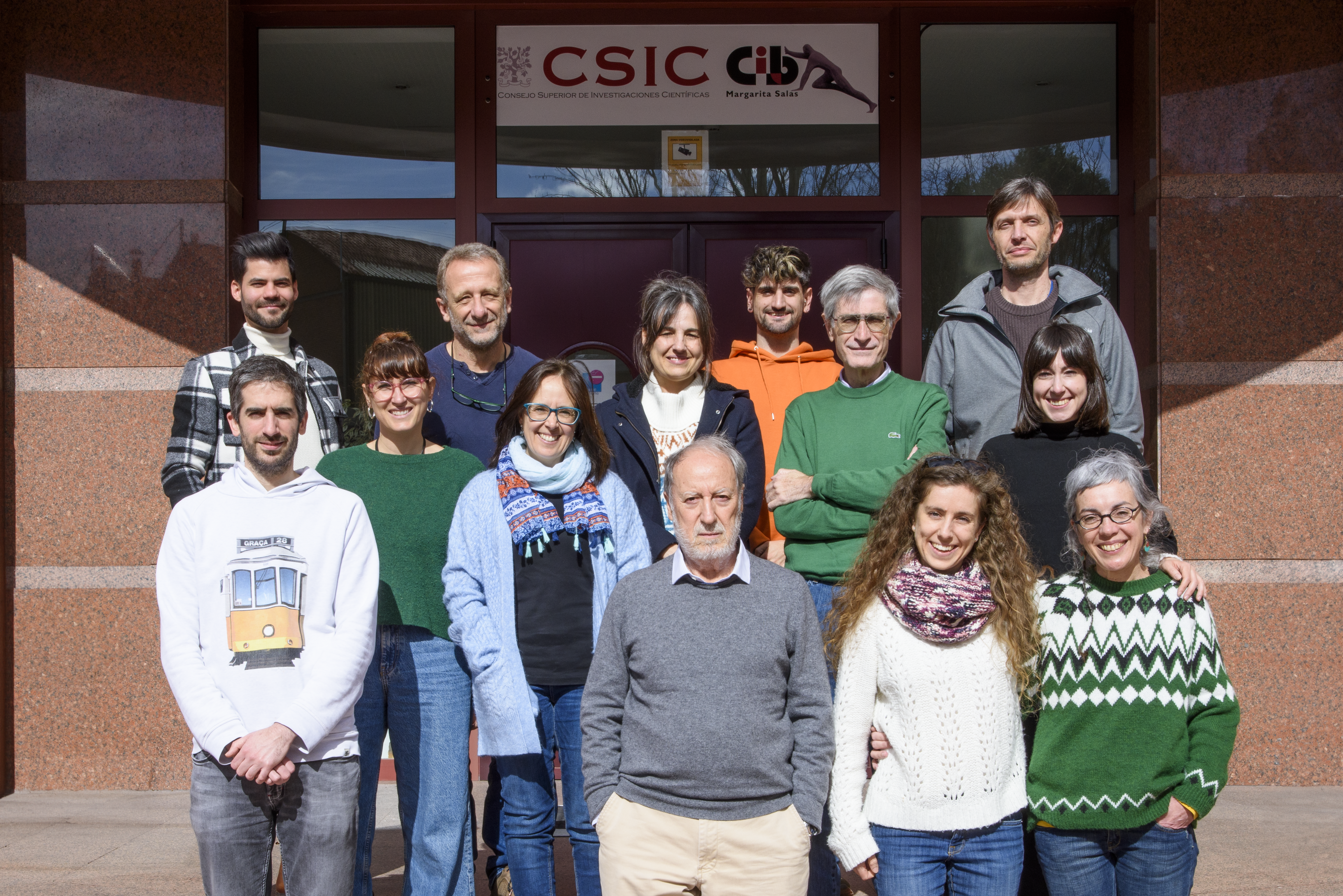Group Leader/s
intro
We aim to provide knowledge-based insights and novel tools for managing arthropods of agricultural and medical relevance. The interdisciplinary composition of the group (ecology, physiology, and molecular biology) allows a holistic approach to the implementation of Integrated Pest Management strategies, a key issue in increasing food security, environmental quality, and public health.
Members
| Gema María Pérez Farinós |
| Pedro Hernández Crespo |
| José Cristian Vidal Quist |
| Félix Ortego Alonso |
| Lucas Sánchez Rodríguez |
| Carlos García Benítez |
| Mariola Silvestre Granda |
| Elena Lopez Errasquin |
| Nuria Arranz de Pablo |
| Alexandra Pardo Dominguez |
| Lidia Blanco Sanchez |
| Raul Jimenez Coll |
| Eva Maria Perez Lajarin |

Selected Publications
Vidal-Quist, J.C., Declercq, J., Vanhee, S., Lambrecht, B.N., Gómez-Rial, J., Vidal, C., Aydogdu, E., Rombauts, S., Hernández-Crespo, P. [2023]. RNA viruses alter house dust mite physiology and allergen production with no detected consequences for allergenicity. Insect Molecular Biology 32:173-186.
García, M., García-Benítez, C., Ortego, F., Farinós G.P. [2023]. Monitoring insect resistance to Bt maize in the European Union: Update, challenges and future prospects. Journal of Economic Entomology 116: 275-288.
Castells-Sierra, J., Guillem-Amat, A., López-Errasquín, E., Sánchez, L., Ortego, F. [2023]. First detection of resistance to deltamethrin in Spanish populations of the Mediterranean fruit fly, Ceratitis capitata. Journal of Pest Science 96: 1229–1242.
Guillem-Amat, A., López-Errasquín, E., Castells-Sierra, J., Sánchez, L., Ortego, F. [2022]. Current situation and forecasting of resistance evolution to lambda-cyhalothrin in Spanish medfly populations. Pest Management Science 78: 1341-1355.
Cabezas, G., Farinós, G.P. [2022]. Sensitivity of buff-tailed bumblebee (Bombus terrestris L.) to insecticides with different mode of action. Insects 13: 184.
Vidal-Quist, J.C., Ortego, F., Hernández-Crespo, P. [2021]. Contribution of cysteine and serine proteases to proteolytic digestion in an allergy-eliciting house dust mite. Journal of Insect Physiology 133: 104285.
Vidal-Quist, J.C., Vidal, C., Escolar, F., Lambrecht, B.N., Rombauts, S., Hernández-Crespo, P. [2021]. RNA viruses in the house dust mite Dermatophagoides pteronyssinus, detection in environmental samples and in commercial allergen extracts used for in vivo diagnosis. Allergy 76: 3743-3754.
Santamaría, M.E., Auger, P., Martínez, M., Migeon, A., Castañera, P., Díaz, I., Navajas, M., Ortego, F. [2018]. Host plant use by two distinct lineages of the tomato red spider mite, Tetranychus evansi, differing in their distribution range. Journal of Pest Science 91: 169-179
Camargo AM, Andow DA, Castañera,P Farinós GP, [2018]. First detection of a Sesamia nonagrioides resistance allele to Bt maize in Europe. Scientific Reports 8: 3977
Arias-Martín M, García M, Castañera P, Ortego F, Farinós GP [2018]. Farm-scale evaluation of the impact of Cry1Ab Bt maize on canopy nontarget arthropods: a 3-year study. Insect Science 25: 87-98
Funding
Improving the sustainability of insecticide use: new tools for insecticide resistance management and pollinator impact assessment. AEI (PID2022-137142OB-I00). IPs: Drs. Gema Pérez Farinós and Félix Ortego (2023-2026)
Insect resistance monitoring associated with Bt maize cultivation in the European Union. Bayer CropScience Schweiz AG. IP: Dr. Gema Pérez Farinós (2020-2025).
Allergen expression in different culture conditions for Dermatophagoides pteronyssinus and Dermatophagoides farinae. ALK-ABELLÓ, Spain. IP: Dr. Pedro Hernández Crespo (2016-2024).
Tools for the sustainable use of insecticides: towards the management of resistance in pests and unintended effects on pollinators. AEI (PID2019-104578RB-100). IPs: Drs. Félix Ortego and Gema Pérez Farinós (2020-2024).
More info
Other contributions from group members:
Felix Ortego
- Member of the Agricultural Sciences Subarea of the CSIC (since 2023)
- Scientific Advisor of the Spanish National Biosafety Commission (since 2005)
- Member of the EFSA Scientific Network "Environmental Risk Assessment of Genetically Modified Organisms", appointed by the Spanish Agency for Food Safety and Nutrition (since 2009).
Pedro Hernandez Crespo
- Collaborating scientist of the “Agencia Estatal de Investigación” (since 2008).
Gema Perez Farinos
- Member of the EFSA Scientific Network "Environmental Risk Assessment of Genetically Modified Organisms", designated by the Spanish Agency for Food Safety and Nutrition (since 2016).

